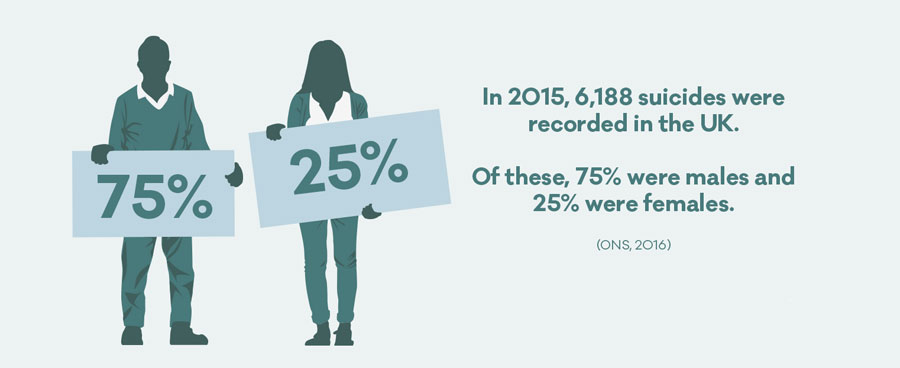Here is Raury’s story covering the subject of depression. This is important, because i find that males are very quiet when it comes to expressing how they feel and what is going on inside, because they probably feel that it’s not ‘socially accepted’ for a male to speak out. So well done to Raury for being brave and honest, and I hope this inspires men to speak out and not be scared to do so!
Name of your condition?
Major Depressive Disorder (MDD) or Clinical Depression and Post-Traumatic Stress Disorder.
How long have you had it for?
17 years.
What are the daily struggles and how has it affected you?
The obvious struggles of day-to-day tasks. Such as getting out of bed, eating, taking medication and so on. But probably most of all, the seclusion and embarrassment of people knowing about it.
Depression is partly constituted by a sneering ‘inner’ voice which accuses you of self-indulgence – you aren’t depressed, you’re just feeling sorry for yourself, pull yourself together – and this voice is liable to be triggered by going public about the condition. Of course, this voice isn’t an ‘inner’ voice at all – it is the internalized expression of actual social forces.
How have you dealt with it?
With medication, therapy, self-care, reading and I think most importantly of all. Allowing myself to feel like this instead of denying the feelings, that are hurting me so much and trying to understand where they stem from. For me, a truly great happiness is to know the source of unhappiness.
Especially after so many years of self-destructive behavior and feeling completely lost. Turning to drink or drugs as a scapegoat, definitely does not work. It took me far too long to realize that.
Is there treatment for this condition?
I don’t really know if there is a psychological catholicon, for mental illnesses. It’s definitely not a clear path, but I think
that you just have to stumble through the dark and hope for something to grab hold of until things are visible, although there’s no telling how long it will take.
Did you ever find it hard to speak about and why?
To other men, definitely. Especially with the stigma surrounding mental illness in males, which I find incredibly sad and difficult to comprehend.
I was luckily raised my entire life by strong and caring women. Who taught me that it is okay to not be able to withstand everything all the time, also that sometimes you have to be kind to yourself, because you deserve delight.
Has your condition led to other illnesses?
The PTSD has sometimes led to brief episodes of psychosis, which took a while to get used to. Seeing geometric objects flying over your head isn’t the most normal or familiar feeling in the world. Also anxiety attacks, which I feel are often worse than either of the other two.
Do you know anyone who has the same condition and if not has that been hard to know that no one you know has it?
Not really. Most people probably know someone who has been depressed at some point or another. The same goes for me, but I wasn’t really raised in a society that was very acceptant of that.
Although I have never been one to feel sorry for myself at all. I have always been shown support, even in the tough environment I was brought up in. I’m very lucky in that respect.
What would your advice be to anyone who is dealing with an invisible illness?
I never ever believed that it would get better. But somehow, through some divine miracle it just does. You have to hold out for it to happen. What would your advice be to people who are trying to help someone with an invisible illness? It isn’t easy, at all. Far from it, but if you love someone enough to help them no matter what. You will always know how much it means. I can’t speak for everyone, but for me. I think that touch is the most powerful gesture anyone can offer. Sometimes even just a hand on the arm can feel like the most, warm reassuring feeling in existence
Written by Raury Millican
FACTS AND STATISTICS
‘PTSD can develop immediately after someone experiences a disturbing event or it can occur weeks, months or even years later.’
‘PTSD is estimated to affect about 1 in every 3 people who have a traumatic experience, but it’s not clear exactly why some people develop the condition and others don’t.’
‘In people with PTSD, parts of the brain involved in emotional processing appear different in brain scans.’
(http://www.nhs.uk/conditions/post-traumatic-stress-disorder/Pages/Introduction.aspx)

‘Suicide is the most common cause of death for men aged 20-49 years in England and Wales.’
‘Between 2003 and 2013, 18,220 people with mental health problems took their own life in the UK.’
(https://www.mentalhealth.org.uk/statistics/mental-health-statistics-suicide)
If you’re suffering with an invisible illness, look at these statistics.. YOU ARE NOT ALONE!
People will help you if you tell them what’s wrong, otherwise how are they meant to know? Be brave, and be honest like Raury has been here, and don’t be ashamed, because life is too short to hide behind your own bars that you create… break out of that, push yourself and take steps forward.
Like Raury mentioned, there is a huge stigma surrounding mental illness in males.I feel like women are allowed to express themselves, but with males that’s not the case. I hope this post has inspired any man who is struggling with an invisible illness. Don’t isolate yourselves because society doesn’t accept it, because the only thing you need to focus on accepting, is yourselves.
Send me in your stories if you’re ready to and always remember to talk to someone!
Thank you for reading,
Naz

One response to “Fight the stigma-Raury”
as a fellow recoverer , keep up with your journey Raury .
chrissie
LikeLike